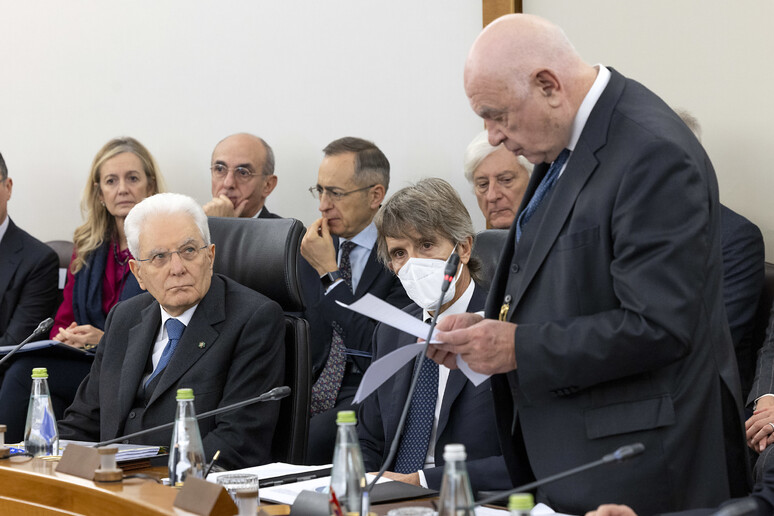Justice Minister Carlo Nordio on
Thursday stood by plans for reform of Italy's justice system,
saying these are essential to restore public confidence in the
judiciary and insisting that in no way is its independence at
stake.
"It is all too important for me to contribute to strengthening
the relationship of public trust in the judiciary, one of the
pillars of the rule of law," Nordio told an extraordinary plenum
of the Supreme Council of Magistrates (CSM), the Italian
judiciary's self-governing body, chaired by President Sergio
Mattarella.
"This is one of the essential policy lines underpinning the
reform pursued by the government," he added, referring to a
broad package of reforms including the controversial separation
of the career paths of Italian judges and prosecutors so they
can longer move between the roles, a clamp-down on the
publication of information obtained from wiretaps, the
cancellation of prosecutors' rights to appeal against acquittals
for many minor crimes and the abolition of the crime of abuse of
office, among other things.
The Italian magistrates union ANM has said that the separation
of career paths is "dangerous for democracy".
ANM President Giuseppe Santalucia said that "it is a reform that
opens the way to others", such as the removal of obligation for
prosecutors to take action in criminal cases and thus make
prosecution 'discretionary'.
He suggested this would be a way of putting the judiciary under
"political control".
"In this world nothing is eternal except the word of the Lord,"
Nordio told the CSM.
"The rest is subject to change - and so is the Constitution," he
added in reference to the fact that introduction of separate
career paths would require a constitutional amendment law.
Four such proposals are currently before the Lower House
Constitutional Affairs Committee.
Were the fundamental charter to change, "never, ever, would
there be even the slightest subjection of the public prosecution
to the executive power," insisted the minister, saying that "the
freedom and independence of the magistrature are a great
achievement that will be reaffirmed by the reforms".
However, "true independence lies within is," he added.
Nordio also said "ensuring that judicial offices have the
necessary staff and tools has been the priority since arriving
in Via Arenula (the seat of the justice ministry, ed.)".
"Guaranteeing the functioning of the jurisdiction - so that it
is able to respond to the request for justice - is our primary
duty," he added.
Nordio also thanked the judiciary for their efforts to meet the
goals set out in Italy's EU-funded national recovery and
resilience plan (NRRP) to reduce the backlog of pending cases
and disposition times for trials, adding that initial results on
this are "encouraging".
"Even if it is necessary to wait for more consolidated results,
allow me to convey to each judicial office and to each
magistrate my applause for the efforts - and the responsibility
- with which they are contributing to the pursuit of such goals,
in the full awareness that the NRRP represents a unique
opportunity for the country," said the minister.
His speech came on the heels of renewed tension between the
government and the judiciary after Defence Minister Guido
Crosetto claimed "judicial opposition" from some parts of the
judiciary represented the only real threat to the Meloni
government.
In recent months there has also been tension in relation to
decisions in legal proceedings regarding members of the
executive and on provisions for migrants.
ALL RIGHTS RESERVED © Copyright ANSA











